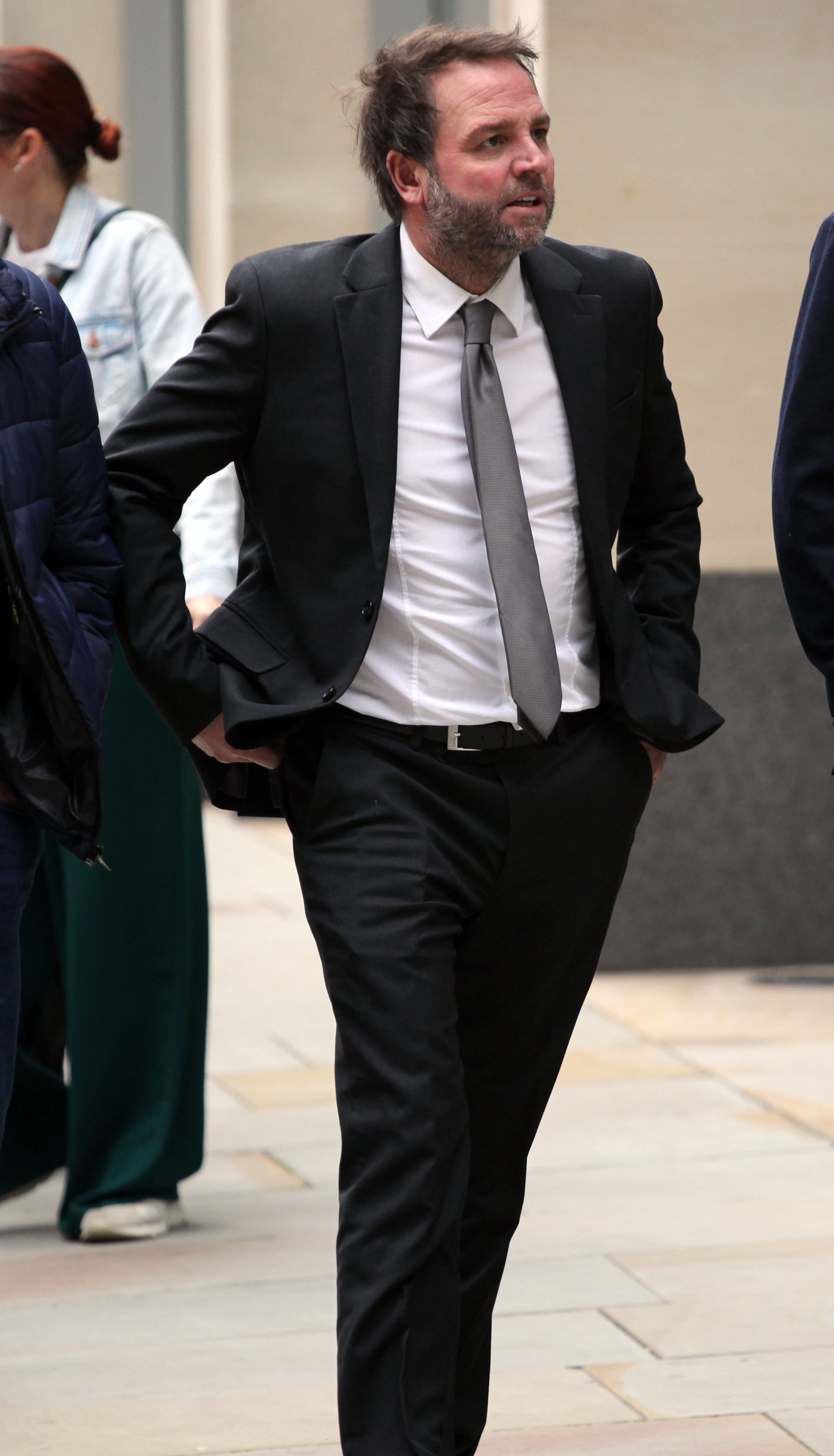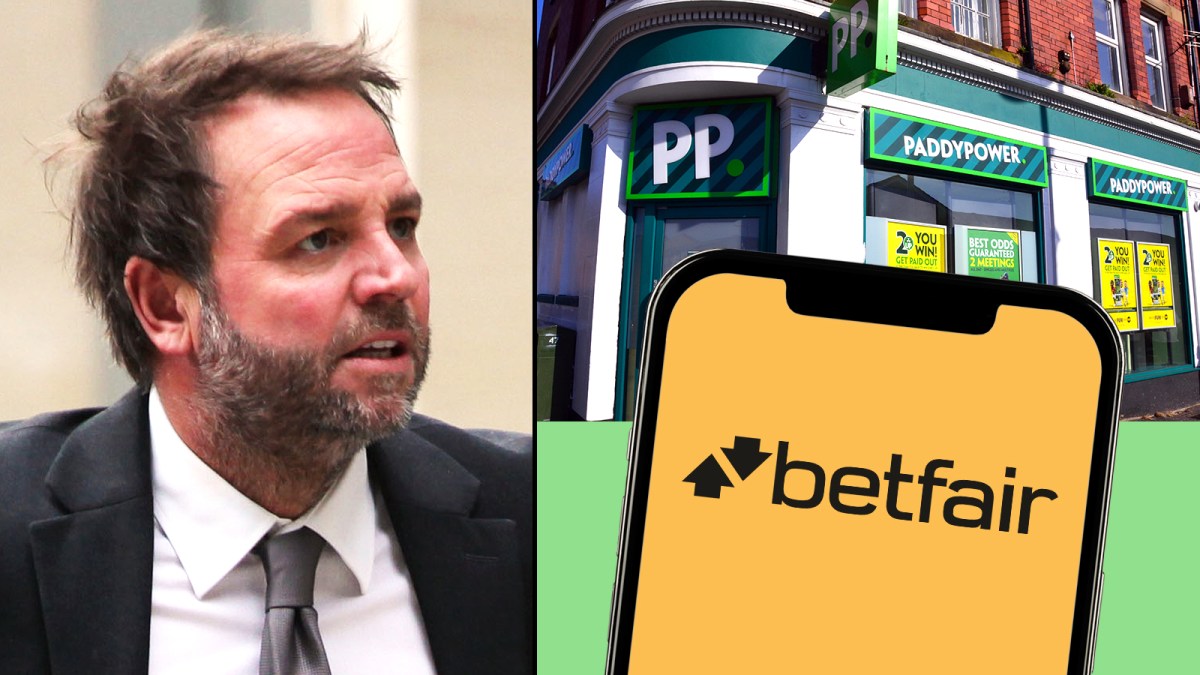A “problem gambler” is suing one of the UK’s biggest bookmakers over claims that it should have prevented him squandering nearly £1.5 million betting on football.
In what has been described as a potentially landmark claim for gambling companies, buy-to-let property tycoon Lee Gibson has told judges that Betfair bosses had a duty of care to protect him from himself.
The 47-year-old millionaire — who claimed that Betfair afforded him “VIP” status — was said to have placed more than 30,000 individual wagers through the company’s betting exchange over ten years until 2019.

Gibson outside the Court of Appeal
CHAMPION NEWS SERVICE
Giving evidence in court, Gibson, from Leeds, acknowledged that he initially found the bets to be “enthralling and exciting”.
But his losses became “unsustainable” and by 2019 the bookmakers permanently suspended his account.
Gibson launched a legal claim against Betfair over claims that senior staff should have known he was a “problem gambler” and that therefore they were under a duty to stop him sooner than they did.
Betfair was founded 25 years ago. In 2015 it merged with Paddy Power and is now based in Dublin, with annual revenues for last year reported to be nearly £11 billion.
Gibson’s case was rejected last year in the High Court, but he has taken his bid for about £1 million in damages to the Court of Appeal.
Lawyers predict that if the claim is successful it will have significant ramifications for the online betting industry, because it will clarify companies’ duties to the welfare of gamblers.
Representing Gibson, Yash Kulkarni KC told the three-judge panel that his client’s betting was focused on the “correct score” football markets, sometimes in “obscure” games and involved sums up to £20,000.
Kulkarni argued that the High Court should have found that Betfair “knew or ought to have known” that Gibson was a “problem gambler” and that, because it treated him as a VIP with his own individual “relationship manager”, it had assumed a duty to look after him properly.
He told the court that Betfair “knew or had information available to them” showing that Gibson was “chasing his losses” with a series of bets.
The barrister also said that Gibson had borrowed money or sold possessions so that he could continue the gambling spree — and that he was at “a level beyond that which he could afford from his income after tax and expenses”.
Betfair is fighting the appeal — which is being heard by Sir Julian Flaux and Lords Justice Popplewell and Birss — and its lawyer has argued that the original ruling was correct.
That High Court found that there was insufficient evidence to support the argument that Betfair should have known about Gibson’s gambling addiction because he had made efforts to hide it.
In his ruling, the judge said that Gibson “consistently and often reassured Betfair that he was able to fund his gambling, including his losses”.
The judge added that Gibson could “at least on the face of the information he gave to Betfair, afford to fund his gambling, he misled Betfair about his gambling and it is very difficult to identify a problem gambler who is not being honest”.
However, at the appeal hearing, Gibson’s KC argued that the judge should have recognised that because Gibson was “granted a VIP relationship manager whose role was to interact with him to maintain or increase his betting, [Betfair] knew he was likely to be a problem gambler, and had exploited his betting habits to extend bonuses and offers likely to induce further betting”.
As a result, said the lawyer, “Betfair assumed a responsibility to take reasonable care that its facilitation of his gambling did not cause him financial harm by reason of his being a problem gambler”.
The Court of Appeal judgment is expected to be reserved until a later date.

